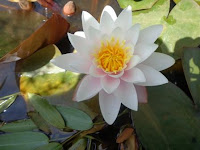For
many years I taught law at a major university in Sydney, Australia. I still teach law, but not at the same place. I used to see my law students---thousands
of them in total—do the very same thing I did when I was a law student back in the early
to mid-1970s. They---as I did in my time---tried to write down in lectures
everything that I said, or at least everything that they thought that I
thought was important and needed to be known and regurgitated at exam time.
I
well remember when I was a law student. By the way, the present Australian Prime Minister Malcolm Turnbull was in my law classes way back then. We all
knew then that he would go places. For starters, he told us that he would. No,
not exactly. But we all knew it. He was then the brightest fellow in the room,
and he still is. But I digress.
Anyway,
I would write down everything the lecturer said—well, as much as I could---often not fully understanding the complicated legal doctrines, rules and principles the
lecturer was pontificating about. I always hoped that the lecture material
would make sense to me when I got home. I would read and re-read my notes on
the train going home but seldom would the stuff make much sense to me. So, when
it came my turn to be the lecturer---I had learned a lot more about the law in the 15 or so years after leaving law school---I would say to my students, ‘Now, if you don’t
understand what the hell I’m saying, please
don’t write it down. Just listen. Listen carefully. Ask questions. Do anything,
but don’t just write down what I say in the vain hope that it will all come together
later, for it seldom will.’ Those last few words---'for it seldom will'---would frighten the heebie-jeebies out of the students, but that wasn't really my aim.
Here’s
a little Zen story which is more than a little on the point. It goes like this. A monk came to the celebrated Zen
master Pai-chang and asked, ‘What’s the most wonderful thing in the world?’
Pai-chang replied, ‘I sit on top of this mountain.’ Impressed, the monk paid
homage to the master, ceremonially folding his hands. So, of course, Pai-chang
hit the monk with his keisaku
(stick). We all need to be hit at times with a keisaku---metaphorically speaking, of course. There are many ways
of waking up to the real. I have always favoured the direct, hard-hitting,
no-nonsense approach. Zap! Sock! Kapow! Whack! Whamm! (Shades of TV’s Batman.)
Now,
the monk did not understand the import and significance of Pai-chang’s
statement, ‘I sit on top of this mountain,’ but he felt he had to give the impression that he understood. We are just
like that monk. Someone tells us a joke which we don’t quite understand, but
which we assume is funny, so we laugh nervously. ‘Oh, that is funny,’ we say, hoping that the other person won’t notice that
we don’t get the joke.
Life
can only be experienced from within.
No one can unlock the so-called mysteries of life for us---no priest, minister,
guru or teacher. Direct, immediate and unmediated experience of the real is the
only way to know and understand. We
must learn to listen. That reminds me of J. Krishnamurti’s many encounters with
his audiences. This would happen quite often. Krishnamurti would ask some
metaphysical question, and someone in the audience would respond with some pat
answer such as ‘There is no self,’ or ‘The knower and the known are one.’
Krishnamurti would snap back, ‘He is copying someone.’ The 'someone' was usually Krishnamurti himself. The pat answer annoyed him to no end. He hated having his own words thrown back at him. So do I as a lecturer. Well, maybe not the first time it happens, but certainly after a while it gets more than a bit irritating. Enough said.
Don’t
copy. Don’t write it down. Don’t pretend to understand something when you don’t. Listen
to the voice of the real—that is, the voice of experience as well as reason. Self-knowledge and self-understanding,
gained from a life lived mindfully from one moment to the next, is worth so
much more than all the book knowledge and so-called wisdom of the masters put
together.
Note. The photograph at the top left of this post is of the author, on the occasion of his law graduation in 1978 at the University of Sydney.
Note. The photograph at the top left of this post is of the author, on the occasion of his law graduation in 1978 at the University of Sydney.







